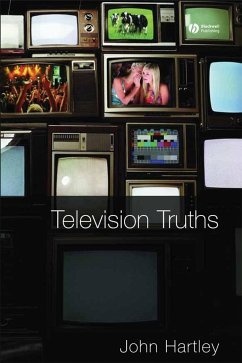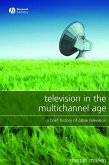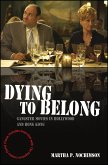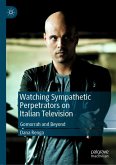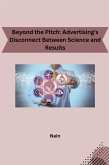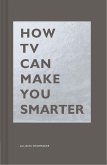Television Truths considers what we know about TV, whether we love it or hate it, where TV is going, and whether viewers should bother going along for the ride.
Television. Love it or hate it, it is still the most popular pastime ever. It reflects and shapes our knowledge of contemporary life across the economic, political, social and cultural spectrum, and yet TV is still among the most criticized phenomena of modern life. Everyone watches it, but everyone's also a critic.
This engaging book, written by one of television's best known experts, invites us to explore television's most controversial coverage and fascinating formats: TV citizenship, live TV, 'plebiscitary' shows, reality TV, synchronized sports and TV's own history. At a time of unprecedented change in technologies and business plans, Hartley explores television's evolving place and transforming role in our knowledge-based society.
Television. Love it or hate it, it is still the most popular pastime ever. It reflects and shapes our knowledge of contemporary life across the economic, political, social and cultural spectrum, and yet TV is still among the most criticized phenomena of modern life. Everyone watches it, but everyone's also a critic.
This engaging book, written by one of television's best known experts, invites us to explore television's most controversial coverage and fascinating formats: TV citizenship, live TV, 'plebiscitary' shows, reality TV, synchronized sports and TV's own history. At a time of unprecedented change in technologies and business plans, Hartley explores television's evolving place and transforming role in our knowledge-based society.
"The author describes this broad survey as 'a sustained reflection on the tensions produced by the problem of knowledge in and about television.' Hartley argues that television s history and historiography have not been well done thus far. The book as a whole offers something of a philosophy of television. Recommended." ( Choice Reviews , December 2008)

